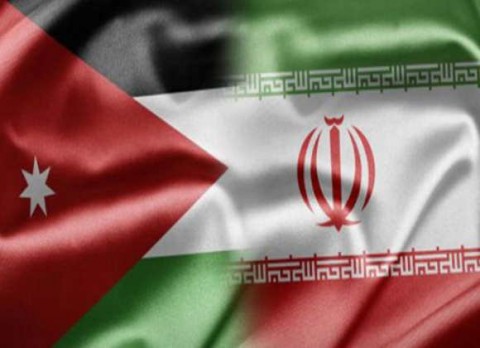A Jordan-Iran rapprochement?

Amman sends an olive branch to Tehran ahead of Biden’s tour
Jordanian Prime Minister Bisher al-Khasawneh had surprisingly warm words for Iran in an interview with BBC Arabic earlier this week. He affirmed that Iran does not threaten Jordan’s national security, that Jordan does not treat it as a threat, and is open to developing a healthy relationship with the Islamic Republic.
This is the first time in years such a senior Jordanian official has spoken about Iran in such conciliatory terms — and ahead of the Jeddah conference to be chaired by US President Joe Biden reportedly aimed at inaugurating a ‘Middle East Security Alliance’ or ‘Arab NATO’ including Israel directed against Iran.
Anyone familiar with the way Jordan operates will know that the substance and timing of these unexpectedly positive comments about Iran were no coincidence or slip of the tongue, but the result of a political decision taken at the highest level.
Only a few weeks ago Jordanian discourse towards Iran was hostile. A succession of officials accused Iranian-backed armed groups in southern Syria of waging a ‘drugs war’ across the Jordanian border (without mentioning the more serious smuggling of weapons destined for occupied Palestine for use in the armed uprising against Israeli occupation).
I agree with PM Khasawneh that Iran does not and has never posed a threat to Jordan’s national security. Indeed, the ruling Hashemite family is held in special esteem by Iranians, government and people alike, due to their reverence and respect for the descendants of Prophet Muhammad. I also agree with him that Jordan’s differences with Iran stem from its perceived “interference in the internal affairs of some Gulf states whose security is considered part of Jordan’s security.”
In other words, there is no direct quarrel between the two sides. It is only Jordan’s over-zealous support for the Gulf states, especially Saudi Arabia, that prompts it to be hostile to Iran and describe it as a threat — whether to ingratiate itself, in compliance with US dictates, in the hope of receiving some financial aid to help alleviate Jordan’s grinding economic crisis or a combination of all three reasons.
But this appeasement, which has entailed many sacrifices including years of strained relations with Iran, has gained nothing for Jordan. It remains financially cut off by most Gulf states, and they have failed to comply with earlier agreements such as their commitment to providing Jordan with an annual billion-dollar grant.
The Jordanian government vested high hopes in Saudi Crown Prince Muhammad Bin-Salman’s visit to Amman two weeks ago, both in terms of aid and investment in Jordanian mega-projects. But the visit only lasted a few hours, and despite the lavish welcome laid on for the de-facto Saudi ruler, failed to live up to Jordanian hopes and expectations.
Opening up to Iran, in deed and not just in word, would
be beneficial to Jordan’s economic and security interests. Iran leads a formidable multi-pronged regional alliance, the Axis or Resistance, bolstered by a sophisticated home-grown defence industry. Tehran would welcome such a rapprochement. It has repeatedly sent out positive signals in this regard, but the response from Amman was always wary.
If Iran’s arch-foe Saudi Arabia can welcome Iranian pilgrims at the Hajj, why doesn’t Jordan do the same and allow access to Shia shrines in southern Jordan such as the tomb of the Prophet’s companion Jaafar al-Tayyar? That could attract hundreds of thousands of Iranian visitors — as the Sayyeda Zeinab shrine near Damascus does — potentially earning the Jordanian treasury an estimated one billion dollars per year.
Jordan’s policies, especially towards Iran and its regional allies, are in need of a serious rethink. Relations with Iran should no longer be geared to appeasing or mollifying a few Gulf states. That policy has brought Jordan nothing but a succession of disappointments because they do not appreciate the sacrifices and political security costs it entails.
It is to be hoped that Khasawneh’s warm and conciliatory words for Iran are the prelude to turning a new leaf — for crisis-ridden Jordan’s sake rather regional superpower Iran’s.
It should be appreciated in Jordan that the Ukraine war is changing and will change all the international equations, and that pre-war policies and alliances will not remain viable post-war.
https://www.raialyoum.com/a-jordan-iran-rapprochement/
 TheAltWorld
TheAltWorld 
Guy St Hilaire
Things are looking up .Good move on the part of Jordan IMHO.